Filter by
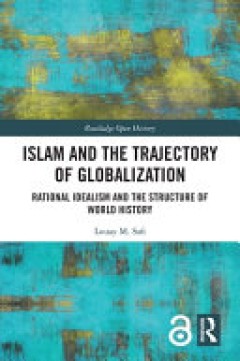
Islam and the trajectory of globalization : rational idealism and the structu…
The book examines the growing tension between social movements that embrace egalitarian and inclusivist views of national and global politics, most notably classical liberalism, and those that advance social hierarchy and national exclusivism, such as neoliberalism, neoconservatism, and national populism. In exploring issues relating to tensions and conflicts around globalization, the book iden…
- Edition
- -
- ISBN/ISSN
- 9781003203360
- Collation
- xii + 322 p
- Series Title
- -
- Call Number
- 322.1 LOU i
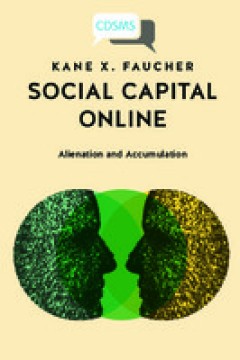
Social Capital Online : Alienation and Accumulation
"What is ‘social capital’? The enormous positivity surrounding it conceals the instrumental economic rationality underpinning the notion as corporations silently sell consumer data for profit. Status chasing is just one aspect of a process of transforming qualitative aspects of social interactions into quantifiable metrics for easier processing, prediction, and behavioural shaping. A work o…
- Edition
- -
- ISBN/ISSN
- 9781911534570
- Collation
- xxiv, 161p. : ill
- Series Title
- -
- Call Number
- 303.4833 KAN s

The neoliberal age? : Britain since the 1970s
The late twentieth and early twenty-first centuries are commonly characterised as an age of ‘neoliberalism’ in which individualism, competition, free markets and privatisation came to dominate Britain’s politics, economy and society. This historical framing has proven highly controversial, within both academia and contemporary political and public debate. Standard accounts of neolibera…
- Edition
- -
- ISBN/ISSN
- 9781787356856
- Collation
- xvii, 398 p.
- Series Title
- -
- Call Number
- 320.5130941 NEO A
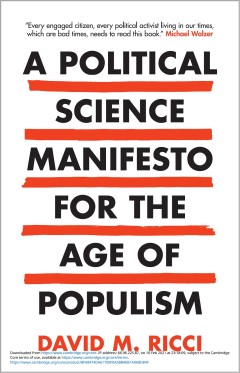
A political science manifesto for the age of populism : challenging growth, m…
Populism and authoritarian-populist parties have surged in the 21st century. In the United States, Donald Trump appears to have become the poster president for the surge. David M. Ricci, in this call to arms, thinks Trump is symptomatic of the changes that have caused a crisis among Americans - namely, mass economic and creative destruction: automation, outsourcing, deindustrialization, globali…
- Edition
- -
- ISBN/ISSN
- 9781108785440
- Collation
- x, 245p. : ill.
- Series Title
- -
- Call Number
- 320.473 RIC p
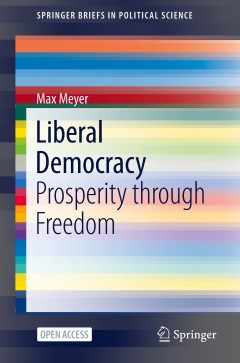
Liberal democracy : prosperity through freedom
This open access book aims to show which factors have been decisive in the rise of successful countries. Never before have so many people been so well off. However, prosperity is not a law of nature; it has to be worked for. A liberal economy stands at the forefront of this success – not as a political system, but as a set of economic rules promoting competition, which in turn leads to innova…
- Edition
- -
- ISBN/ISSN
- 9783030474089
- Collation
- viii, 74p. : ill.
- Series Title
- -
- Call Number
- 330.01 MEY l
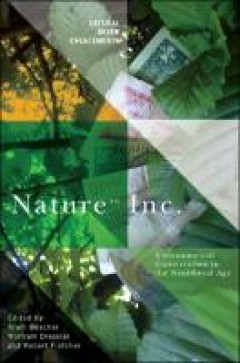
Nature Inc: environmental conservation in the neoliberal age
With global wildlife populations and biodiversity riches in peril, it is obvious that innovative methods of addressing our planet’s environmental problems are needed. But is “the market” the answer? Nature™ Inc. brings together cutting-edge research by respected scholars from around the world to analyze how “neoliberal conservation” is reshaping human–nature relations.
- Edition
- -
- ISBN/ISSN
- 9780816539215
- Collation
- 278 pages : illustrations ; 24 cm.
- Series Title
- Critical green engagements: investigating the green economy and its alternatives
- Call Number
- 363.7 NAT n
 Computer Science, Information & General Works
Computer Science, Information & General Works  Philosophy & Psychology
Philosophy & Psychology  Religion
Religion  Social Sciences
Social Sciences  Language
Language  Pure Science
Pure Science  Applied Sciences
Applied Sciences  Art & Recreation
Art & Recreation  Literature
Literature  History & Geography
History & Geography